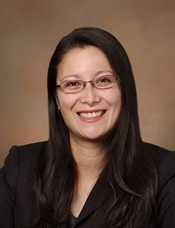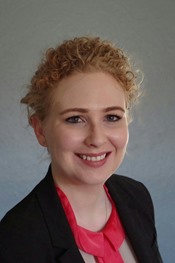A Penny for Your Thoughts: Survey Science for Medical Physicists
L Schubert1*, C Buckey2*, R Ivie3*, (1) University of Colorado Denver, Aurora, CO, (2) Mayo Clinic Arizona, Phoenix, AZ, (3) American Institute of Physics, College Park, MD
Presentations
1:18 PM Translation and Interpretation: Adapting Established and Validated Survey Questions - C Buckey, Presenting Author
1:36 PM Broaden the Horizons: Surveys at National and International Scale - R Ivie, Presenting Author
1:54 PM Audience Q&A - C Buckey, Presenting Author
TH-C-TRACK 1-0 (Thursday, 7/29/2021) 1:00 PM - 2:00 PM [Eastern Time (GMT-4)]
Do you ever feel inundated from surveys, be it professional, political, or product-specific? Requests arrive via email, social media, and text message, and they’re waiting for you in your break room and mailbox. Surveys are an established way to learn about others’ feelings, perceptions, and preferences in addition to fact-finding. Medical physicists can use survey tools to identify and learn more about issues or trends in our working environment that we are responsible to resolve.
How can you prevent your survey from getting crushed by a respondent’s survey fatigue, or simply forgotten about? What are the optimal guidelines for crafting thoughtful queries that get specific answers your team needs? How do you move forward with data analysis once the responses are back? This session shares best practices in survey usage, design, implementation, and analysis. Topics include: how should questions be crafted; how many questions is the right number; how do we deploy surveys internally within departments or externally to larger groups; what is an expected response rate; what do we do with the data once we have it?
We will share concrete examples of researchers who have written their own surveys, adapted outside surveys for their own use, and deployed large-scale surveys. We will help the audience to understand what works well and what is unexpectedly challenging when physicists seek to ask questions of other physicists. Who can use the data, who can see the data, what identifying information is present, and other subtle but important aspects will be included.
Learning Objectives:
1. Share best practices for creating your own survey questions, methodologies, and workflows
2. Offer a framework for attendees to approach the task of translating established and validated survey questions to their own site, department, team, hierarchy, infrastructure, IRB, etc.
3. Provide guidance to those hoping to send a survey outside of their own institution by describing the process of large-scale survey design
Handouts
- 166-58198-15651646-171673-1583378785.pdf (Leah Schubert)
- 166-58198-15651646-171673-2004676429.pdf (Leah Schubert)
- 166-58968-15651646-178425-1918964690.pdf (Rachel Ivie)
- 166-58198-15651646-171673-1583378785.pdf (Leah Schubert)
- 166-58198-15651646-171673-2004676429.pdf (Leah Schubert)
- 166-58199-15651646-170971-2033244594.pdf (Courtney Buckey)
Keywords
Survey, Questionnaire, Evaluation
Taxonomy
Leadership: Change Catalyst - Initiating or managing change.
Contact Email





